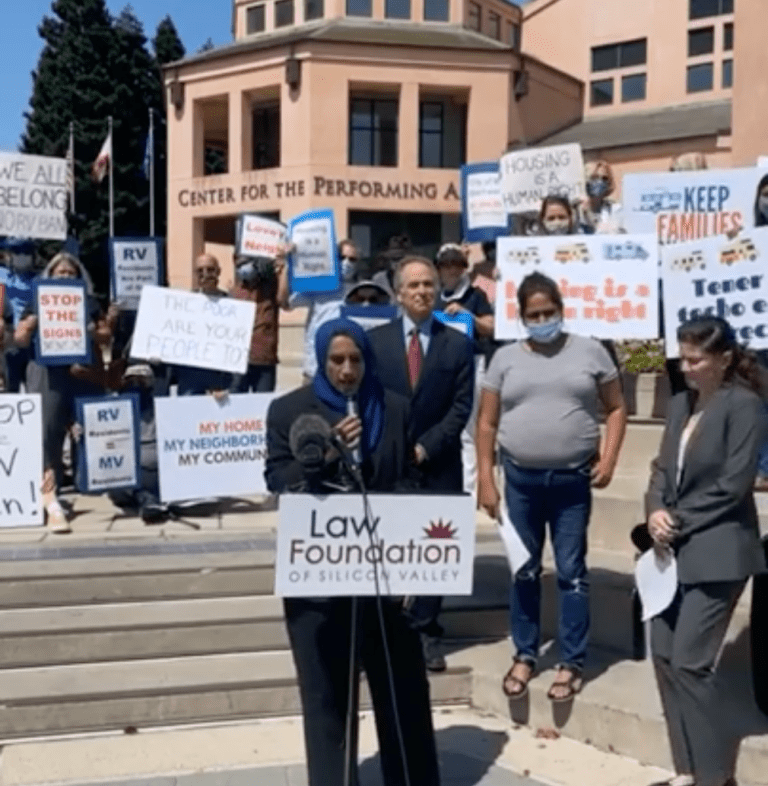Community advocacy organizations have filed a lawsuit in federal court against the City of Mountain View after the city council enacted an ordinance that prohibits oversized vehicle parking on public roads. The suit was filed on behalf of the city’s RV and oversized vehicle residents, who would be impacted by the new ordinance.
The ordinance, which was later affirmed by Mountain View voters through Measure C, went into effect on June 30 and prohibits the parking of “oversized vehicles” on streets 40 feet in width or less, excluding wheelchair accessible vehicles with disabled placards as well as vehicles parked temporarily for loading and unloading purposes. Mountain View police will be authorized to tow vehicles in violation of the measure when signage is posted.
Mountain View officials have until Sept. 10 to respond to the legal action filed by a coalition of groups and companies, including the Law Foundation of Silicon Valley, ACLU Foundation of Northern California, Disability Rights Advocates, Hewlett Packard Enterprise and King & Spalding.
“I believe that our laws are a reflection of our society, which should protect vulnerable populations, not seek to punish them or to harm them,” said Sam Diamant, attorney for King & Spalding.
The City of Mountain View referred The Daily to a July 14 statement that said the city is evaluating the lawsuit, and will continue to conduct “multifaceted outreach and provide information about resources available in Mountain View.” A spokesperson for the city added that sign installation aligning with Measure C “is expected to begin in the coming weeks.”
Diamant called the ordinance “unconstitutional and morally wrong.” The coalition’s complaint says the ban violated the “rights of vulnerable individuals who have been forced to seek shelter in RVs in order to remain in the City and access medical care, schools, employment, and other resources available to them in their community.”
Though the lawsuit is aimed at Mountain View, Law Foundation attorney Michael Trujillo said it could have a ripple effect on affordable housing efforts across the Bay Area.
“We are concerned that this will become a tactic in other cities, and that’s part of the reason why we brought the suit — to show that these types of ordinances are not a constitutional approach to addressing the problem of housing and housing insecurity and homelessness in the Bay Area,” he said.
Disability Rights Advocate Supervising Attorney Thomas Zito said the lawsuit’s efforts align with the DRA’s mission of ensuring equal rights for disabled communities across the country.
“People with disabilities are overrepresented in the houseless community,” Zito said. “So for that reason, it’s a particular interest to our organization. Trying to advocate for those who are the — not only people with disabilities — but also, people who have the least political power in this situation.”
